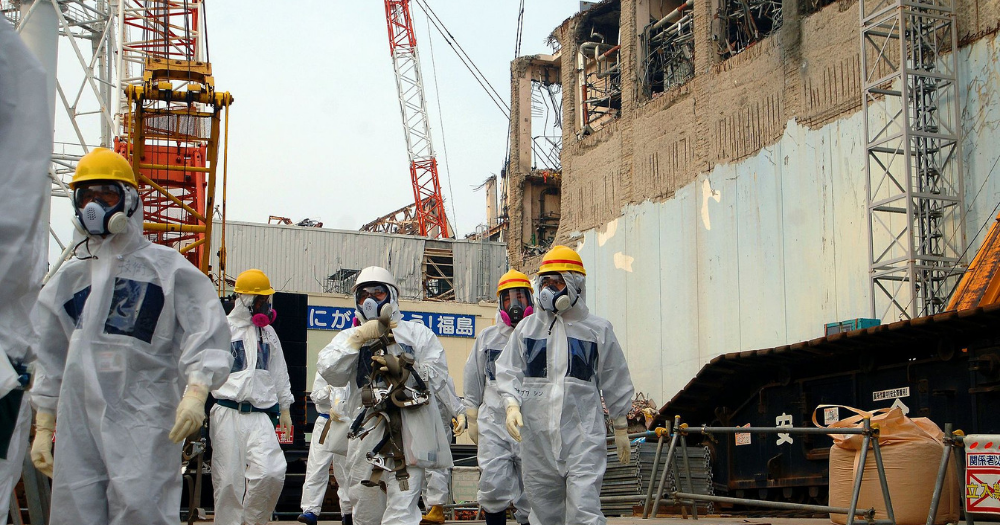Japan's environmental minister, Yoshiaki Harada, said that his country might have "no choice" but to discharge radioactive water into the Pacific Ocean.
This was revealed in a press conference that took place on Sept. 10, 2019.
Running out of storage space
In 2011, three reactors in the Fukushima power plant melted down after an earthquake and tsunami.
Subsequently, millions of tons of water were pumped into the plant over the years, to cool down the fuel cores, reported CNN.
According to BBC, 200 tonnes of water had to be pumped out of the reactor buildings every single day for the past eight years.
Some 1 million tonnes of contaminated water have accumulated on-site thus far.
Once the water is used and contaminated with radioactive materials, it is stored in storage tanks.
However, storage space for the water is apparently dwindling, and will run out by 2022.
Harada stated that the only solution left would be to dump the wastewater water into the ocean and "dilute it", reported The Mainichi.
Harada did not reveal how much water would be dumped.
Extent of wastewater's harmfulness unclear
The water generated is reportedly treated via a complex filtration process that remove most radioactive isotopes.
But one isotope, tritium, cannot be removed, which was why the wastewater is stored in tanks.
Tritium though, is considered relatively harmless to human and animal health.
Japan has also stressed that contaminated water is commonly released into oceans by nuclear plants worldwide, without any risk to the environment, according to The Straits Times.
Not entirely convinced
However, many remain unconvinced of the wastewater's supposed harmlessness.
For instance, Japan's latest plan to dump the water into the Pacific Ocean has been met with vehement opposition from local fishermen groups and even South Korea.
Additionally, according to Japan Times, the operator of the Fukushima Daiichi plant said in 2018 that the water contains contaminants other than tritium.
Decision has yet to be made
Chief Cabinet Secretary Yoshihide Suga added that Harada had been expressing his own "personal opinion".
He reiterated that the government had not settled on a course of action yet: "There is no fact that the method of disposal of contaminated water has been decided. The government would like to make a decision after making thorough discussion."
According to ST, four other options are also being considered, including encasing the wastewater in cement and burying it, or vaporising the water as steam.
Singapore currently restricts imports of seafood, milk, meat and vegetables from Fukushima following the 2011 nuclear disaster.
Top photo from Wikipedia
If you like what you read, follow us on Facebook, Instagram, Twitter and Telegram to get the latest updates.
